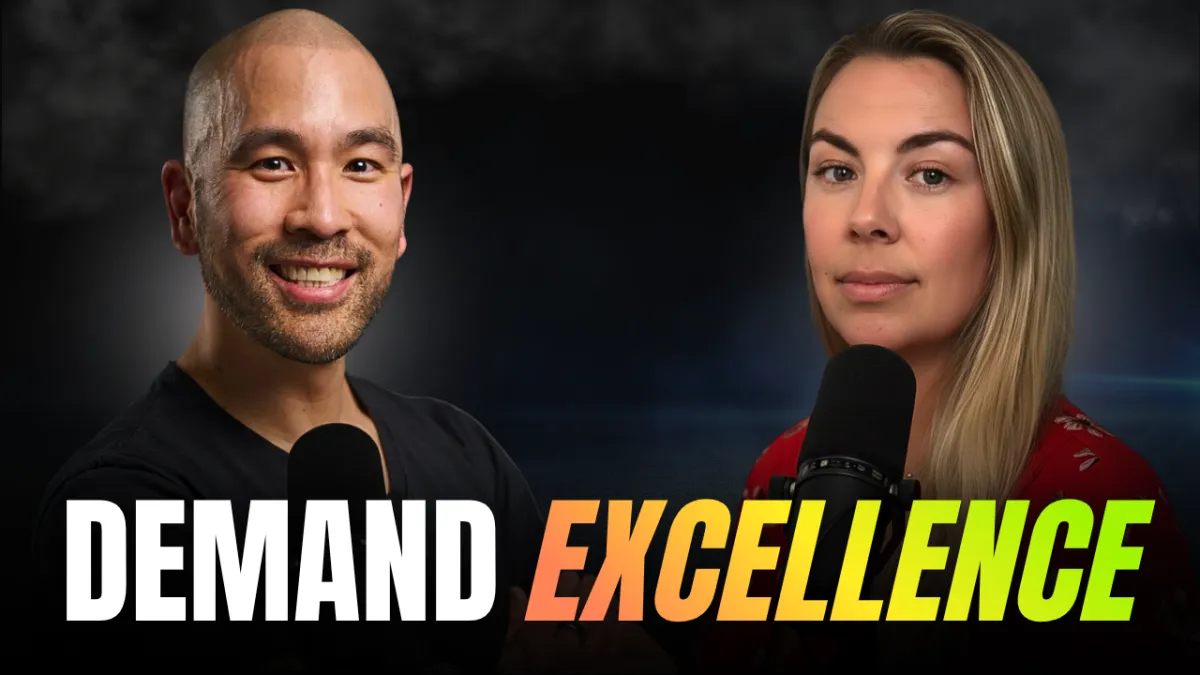
How a Head of Sales Turns Underperformers Into Top Reps (By Doing What Most Leaders Won't)
Most sales leaders see a struggling rep and immediately reach for the spreadsheet.
Low close rate? Cut them. Behind on quota? Performance plan.
The data doesn't lie, right?
Meredith Chandler, Head of Sales at Aligned, does something different. And it's why she's built championship teams at companies like Samsara while other leaders churn through talent like it's their job.
When C-suite executives wanted to cut a rep during layoffs, Meredith saw what the spreadsheet couldn't: the intangibles. "Every morning I wake up, he's sent me a new podcast he listened to. He self-assesses all of his calls. He asks me for feedback," she told the leadership team.
Her demand? Give her one quarter with proper coaching. That "dead weight" rep is now their North Star performer.
The Mirror, Process, Employee Framework
Here's what separates elite sales leaders from armchair quarterbacks operating off pure spreadsheets: they know where to look first when performance breaks down.
Meredith's approach mirrors what Marcus calls the MPE Framework:
Mirror: Look at yourself as the leader first
Process: Examine the systems and structure
Employee: Only then evaluate if it's a skill or will issue
"We have so much great talent," Marcus explains. "They're good people. The numbers don't show it, but they were never provided the proper training, direction, support and coaching to get the most out of them."
Most performance problems aren't people problems. They're systems problems disguised as people problems.
The Hiring Move That Reveals Everything
Ask Meredith about her interview process and she'll tell you the most important part isn't the initial conversation. It's what happens after the role play exercise.
If she believes strongly in a candidate, she gives them real-time feedback and has them redo the exercise immediately. "That will show me how quickly you can implement. How do you receive feedback? Can you implement it in real time and how fast?"
The best candidates don't get defensive. They say "Let me go again" before she even asks.
This reveals two critical traits: coachability and growth velocity. You can teach someone to sell. You can't teach them to want to improve.
Why Frontline Managers Are Set Up to Fail
"Frontline managers are so largely underserved in sales," Meredith says. "You take a top performing rep and say, 'Great job, Marcus. Now go make 10 Marcus's.' And we don't give them any training."
Her solution? Create transition plans before they're in the seat. Six to eight weeks of structured training on the skills that matter: reading P&Ls, understanding metrics, running effective 1:1s, providing coaching that sticks.
"Once they're in that role it's going to be way too chaotic," she explains. "They're not going to feel safe to fail."
Train them while they're still comfortable in their current role. Let them develop the muscle memory before the pressure is on. And create a safety net for your organization - if they discover they don't actually want to be a manager, no harm done.
The Demand Excellence, Pour In Principle
Meredith's philosophy comes down to a simple truth: "With anything or any relationship in life, even a sale, it's give and get. You can't just expect to get, get, get. I can't expect reps to produce, produce, produce if I'm not pouring into them as well."
She demands excellence. But she meets reps halfway with world-class coaching, development, and support.
That's not just good leadership. That's how you build North Stars.


Mail
Facebook
LinkedIn
X
Pinterest
Snapchat
Reddit